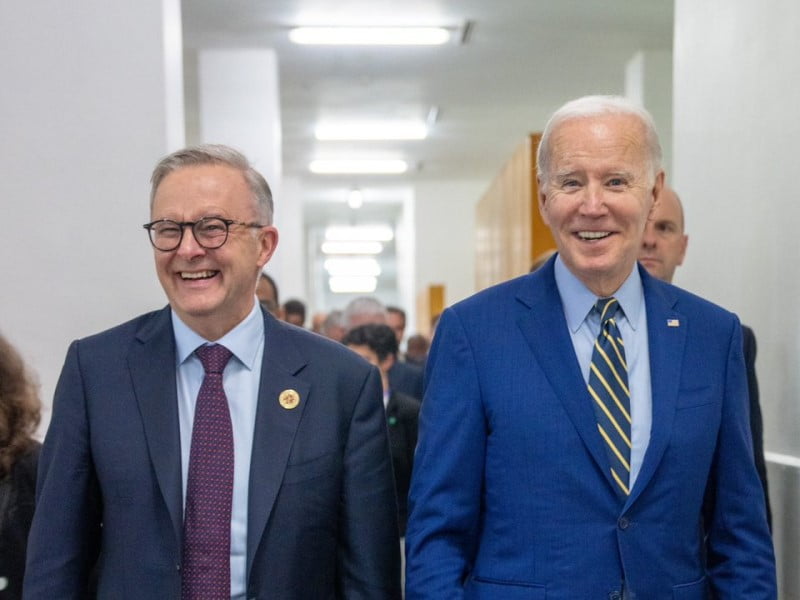A United States’ presidential executive order to streamline its defence technology export controls should be issued to make AUKUS a “functional reality”, according to a new report from the University of Sydney’s United States Studies Centre.
The report, released on Wednesday, said this should include the initiation of AUKUS-specific program licences and open general licences, specific exemptions from the International Traffic in Arms Regulations (ITAR) regime, and measures to increase joint development of emerging technologies under AUKUS Pillar II.
While authors Dr William Greenwalt and Tom Corben note in the report that there is “no consensus among stakeholders” on whether export control reform should be achieved through the US executive or Congress, it states that “in reality, these options are not mutually exclusive”.

ITAR reforms made in the report’s executive branch recommendations include exempting non-US manufactured and designed equipment from the regime within US borders, abolishing the extraterritorial application of ITAR on defence components returned to AUKUS Original Equipment Manufacturers for repair or maintenance, and exempting non-US AUKUS intellectual property (IP).
Among the legislative changes proposed are to extend ITAR exceptions already provided to Canada to Australia and the United Kingdom and to “provide a carve-out exception for the United Kingdom and Australia on how technical data and services are treated”.
The report noted that many of the issues regarding the International Traffic in Arms Regulations (ITAR) have been known for years, however previous attempts to reform US export controls for Australia and the United Kingdom have not yielded the expected results.
The current ITAR is based on an “outdated mindset”, having been launched in the midst of the Cold War to protect US national security interests by controlling the export of defence and military related technologies.
Stakeholders are now raising concerns that it will “complicate Australia’s Optimal Submarine Pathway under Pillar I, disincentivise collaboration on the next-generation of advanced military capabilities under Pillar II, and continue to slow-roll cooperation on existing technology transfer and capability-building initiatives”.
“Broadly speaking, the ITAR suffers from two classes of problems: practical issues relating to inefficiencies in the current suite of export control frameworks and processes; and more intangible, conceptual issues including the desire for control over innovation, as well as what others have referred to as a “superpower mindset” rooted in a bygone era of strategic and technological dominance, one that continues to colour US perceptions of the value and worth of allied inputs into collective efforts,” the report reads.
Specific concerns from the perspective of Australian companies and governments include the speed of processing licence approvals and waivers, the fear of losing IP when working with the US Department of Defense, and the significant financial and human capital costs of ITAR compliance or to deal with unintentional breaches.
Similar concerns regarding the slow pace of ITAR licence processing have been expressed by career diplomat James Carouso, who is now at Washington-based think-tank the Center for Strategic and International Studies
In an address to the National Press Club, former American naval chief Richard Spencer and dual-use technology venture capital firm described ITAR as the “biggest speed bump” that must be addressed to facilitate AUKUS collaborations as well as competition in defence innovation generally.
Last November, Parliamentary Joint Committee on Intelligence and Security chair Peter Khalil said the federal government is “working cooperatively to address gaps and barriers, and there are some gaps that need to be addressed in order to ensure that trilateral technology transfer can occur smoothly”, highlighting US restrictions on technology transfers.
The United States Studies Centre Foreign Policy and Defence Program is funded by the Australian Department of Defence as well as defence industry multinationals Thales and Northrop Grumman.
United States President Joe Biden on Wednesday cancelled plans to visit Australia next week to focus on domestic politics. He was due to attend a Quad Leaders meeting, alongside the leaders of India and Japan, which has now also been cancelled.
Do you know more? Contact James Riley via Email.

